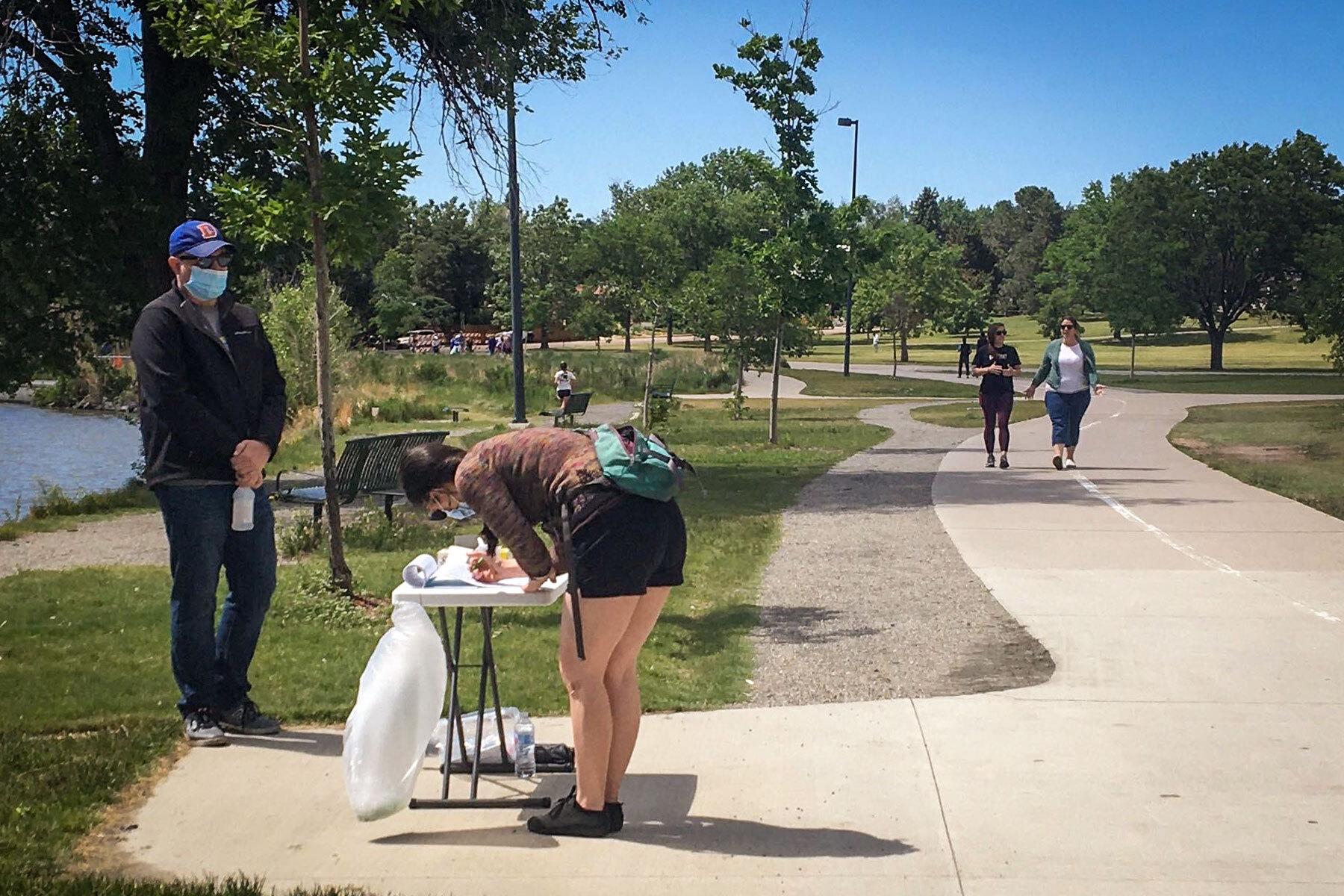
Colorado’s ballot initiative campaigns will have to gather signatures the old fashioned way, instead of going digital, if they want to place questions on this November’s election ballots.
That’s according to a new ruling from the Colorado Supreme Court, which struck down Gov. Jared Polis’ emergency changes to the process. It's a change that may dramatically increase costs for campaigns. To collect their thousands of signatures, they will have to send more paid canvassers and volunteers into the field.
Polis issued an executive order in May that was meant to allow the collection of signatures by mail or email. Campaigns normally have to collect thousands of signatures in person to qualify for the ballot. The business group Colorado Concern and one of its members sued the governor, arguing he’d overstepped his authority.
They lost in a lower court, but the state’s highest court took the appeal. The court noted that the petition gathering process was written in detail into the state constitution by voters in 1910. The constitution requires that “the personal signature occur in the presence of the person circulating the petition,” the ruling stated. “That requirement cannot be suspended by executive order, even during a pandemic.”
The email collection system was meant to mitigate the risk of coronavirus transmission by reducing the use of in-person signature gathering. That could also make it cheaper and easier to gather thousands of signatures. But some campaigns were still trying to figure out the new process, and most were deploying in-person crews anyway, with safety measures like using a new pen for every voter.
Nineteen initiatives are currently in the signature gathering phase, including the tax measure that would raise rates on higher income earners; a measure to create a paid family and medical leave program; new taxes on tobacco and nicotine; and measures to lower taxes and give voters more control of fees.
"We are still reading the decision but we have stopped any single line (digital) petition gathering, but we don’t expect the decision to hinder us from having all the necessary signatures by August 3rd," wrote Olga Robak, communications director for the paid leave Colorado Families First campaign, in an email.
The campaigns were allowed to collect signatures for about a month under the emergency rules, which allowed voters to submit signatures by mail or email. Those mailed and emailed signatures now could be voided.
Scott Wasserman, a leader of the Fair Tax initiative, said his campaign would lose out on a few hundred signatures. It had taken weeks to get moving under the new process, he said. But the campaign also has spun up about 1,000 volunteers and will pay staffers. It needs about 120,000 valid signatures in total by Aug. 3.
"This is still doable. It will be a huge lift. And we are certainly David against Goliath, but I think it's certainly something that's possible," he said.
The change could be especially damaging to campaigns with less money, he noted. The cost to gather signatures rises dramatically as deadlines approach. "The line that runs through this is that money just controls everything in politics," Wasserman said.
Colorado Concern said it would be negatively affected if voters approved some of the initiatives, especially paid family leave and the progressive tax measure. A conservative initiative group, Colorado Rising State Action, said its initiatives on taxes and fees wouldn't be affected, thanks to the "excitement around our campaign and gathering signatures in person."
Polis called the court's decision a blow to citizens' right to put issues to voters.
"It is certainly convenient for certain groups or elected leaders have to deal with fewer ballot initiatives. It makes my life easier as Governor that there will be fewer curveballs coming our way," he said in a statement. "But sadly it’s at the cost of making it much harder and even dangerous from a public health perspective for activists on all sides to get their issues on the ballot for voters to decide."
A spokesperson for the Secretary of State's office said staff were still analyzing the ruling.









